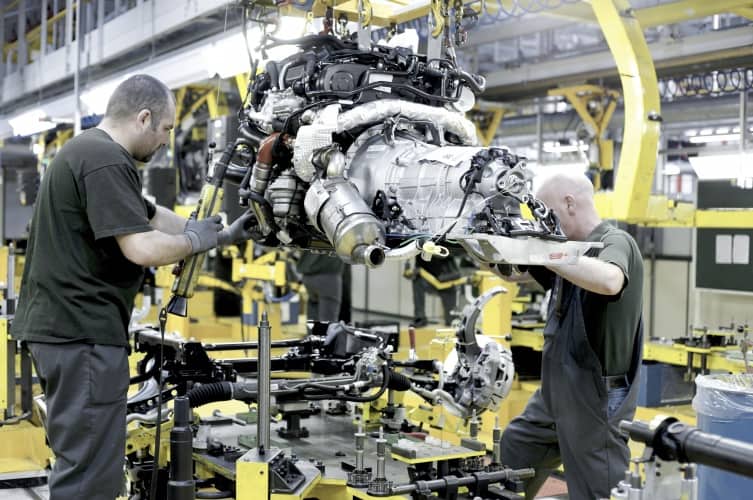If I had a penny for every time a government minister has talked about the importance of “rebalancing the economy” there wouldn’t have been any need for austerity measures; I could have bailed out Britain myself.
It would, of course, take a bit more than that. But it’s certainly true that ever since the earliest days of the financial crisis politicians of all stripes have frequently talked up the need to reduce our dependence on the fickle world of finance and shape a more sustainable, broad-based economy with manufacturing and engineering at its heart.

Back in 2008 Peter Mandelson - Labour’s business secretary – called for “less financial engineering and more real engineering”. Shortly after taking office in May 2010 David Cameron continued the theme, pledging to rebalance an economy that had become too reliant on financial services. And the mantra can still be heard today. Talking just last week at the Davos world economic forum Cameron once again spoke of “the need to rebalance our economy and make sure it’s a North South recovery - manufacturing as well as services.’
So with the Latest GDP statistics indicating that the UK economy is growing more quickly than at any point since the beginning of the financial crisis, it seems a good moment to consider whether our politicians have delivered on their oft-repeated pledge.
It’s fair to say that there have been some promising steps in the right direction.
The launch of the Catapult centres - which are attempting to help promising research find a route to market - represent a welcome investment in the future. Meanwhile, last year’s national infrastructure plan, which details around £375bn of investment in energy, transport, communications, and water projects, is arguably another vote of confidence in the long term benefits of tangible projects.
And, as the latest figures show, there is modest growth in manufacturing. The sector grew by 0.9 per cent in last three months of 2013 – its strongest growth for three years. And the UK’s automotive sector (led by firms like Jaguar Land Rover and Nissan) is in particularly rude health. For the first time since the late 1970s we now export more vehicles than we import. We produced 1.5 million vehicles last year, the highest volume since 2007, and the industry looks set to become the third largest car maker in Europe. Not bad considering it was on its knees just over a decade ago.

But whilst this is all promising stuff, its impact on the wider economy is limited. Indeed, as the latest figures illustrate, the UK’s surprising economic recovery is being driven largely by a growth in consumer spending and revival in the housing market. Not quite the recipe for a sustainable recovery.
What’s more, whilst there has been a fall in unemployment and growth in the number of jobs, figures from the Office of National Statistics suggest that employment is rising more rapidly than output. One implication of this is that productivity is falling. Again, hardly a recipe for a sustainable recovery.
And while many in Westminster have hailed the latest figures as evidence that their economic policy is working, fears over the fragility of the recovery are being voiced at the highest levels of government. Much to his conservative colleagues’ annoyance, business secretary Vince Cable this week chose the evening before the publication of the GDP figure to claim that the recovery could be “short-lived” and warn of a return to “boom and bust”.
Any growth at all is not to be sniffed at, and as we’ve frequently reported, there are plenty of positive signs that engineering and manufacturing are on an upward trajectory.
But there’s a disturbingly familiar shape to Britain’s current growth – and we’re currently a long way from the kind of sustainable balanced economy that you could confidently bet on weathering a repeat of the financial storms that we’ve just sailed out of.





Red Bull makes hydrogen fuel cell play with AVL
Formula 1 is an anachronistic anomaly where its only cutting edge is in engine development. The rules prohibit any real innovation and there would be...